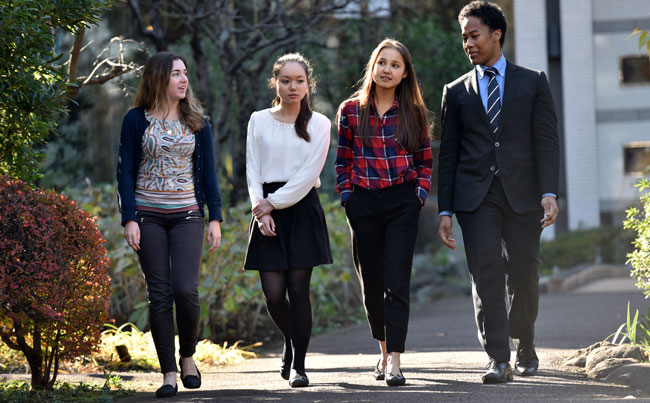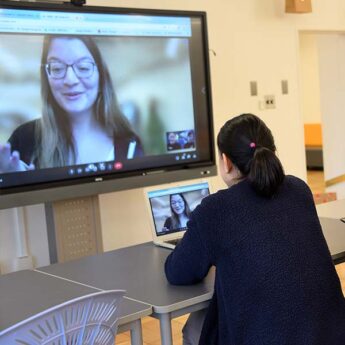
Established in 1989, the British School in Tokyo (BST) has steadily built an enviable worldwide reputation over more than a quarter of a century. Earlier this month, the school’s good name was further enhanced when the Chair of the Board of Trustees, Marianne Black, was awarded an MBE for services to international education in the latest New Year’s Honours list. This prestigious award, one of just 76 granted to recipients overseas, recognises the progress made by BST under her guidance over the past five years and offers affirmation of the school’s central importance to both the British and the broader international community here in Tokyo.
An accredited member of the Council of British International Schools and one of only a small number of schools worldwide to have been independently inspected according to the UK standards for British Schools Overseas, with the school judged to be excellent in every category, we regard this as yet another very welcome endorsement of the high standards we set for ourselves.
This year, for the first time in its history, BST is home to well over 1,000 students. There are many good reasons to explain the remarkable surge in student enrolment at BST in recent years, but foremost among them is the widespread recognition that this is a school where young people of all abilities and from the most diverse backgrounds can find a niche and fulfil their potential.
Since 2012, we have seen the number of 15- to 18-year-old students on our IGCSE and A Level courses more than double to almost 250. And examination results have improved to the point where they match the gold standard set by the UK’s independent sector. Indeed, our graduates are winning places at some of the most prestigious universities around the world.
Young people today see themselves as global citizens and, while most of our graduates seek to continue their education in the UK, there is certainly an increasing interest in both the US and Japan. In addition, a number of current students are looking to Australia and mainland Europe. Most universities worldwide are very familiar with Britain’s public examination system and are more than happy to accept students with A Levels or their equivalent.
In fact, the specialist nature of these courses means that students with better grades can expect to earn significant credit—sometimes up to a whole year’s worth of study. At Harvard, for example, you will need to have at least three A or B grades to matriculate (earn a place), but three A grades will merit a full year’s academic credit; Boston College will offer two courses of credit for A or B grades, while C grades will earn one semester’s credit; and Princeton clearly states on its website that A or B grades will earn Advance Placement credit. It is a similar story across the world.
BST is, of course, much more than an A Level school. All examinations are important, and many parents are impressed by the rigour and structured progression of our particular brand of British education from the age of three through to 18. That said, students here know that education is not simply about passing exams. Sport, music and drama are woven into the fabric of school life, and we see both community service and adventurous activities as real strengths. From their early years in our Nursery and Reception classes, children are given countless opportunities to develop the independence and resilience that will enable them to take the next step in their education—wherever it might take them—with confidence and a smile.







